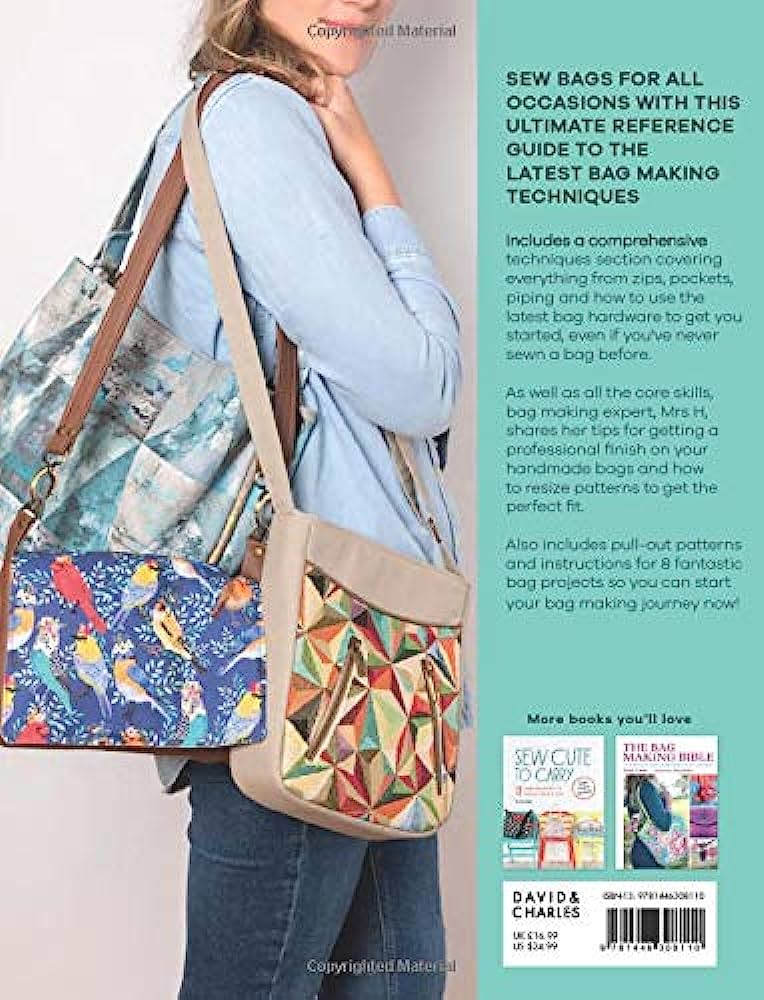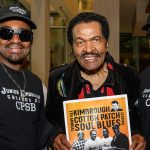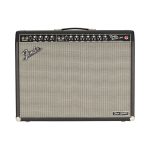Modern musical is a contemporary form of musical theater that combines music, dance, and acting to tell a story in a vibrant and entertaining way. In recent years, this genre has gained popularity for its catchy songs, relatable characters, and innovative choreography.
It brings together elements of different musical styles, such as pop, rock, and hip-hop, resulting in a diverse and eclectic sound. Modern musicals often tackle relevant social issues and appeal to a wide audience, making them a popular choice for both theater enthusiasts and casual viewers.
With their blend of spectacle and storytelling, modern musicals continue to captivate audiences worldwide.

Credit: www.amazon.com
What Is A Musical Masterclass?
In the realm of music education, a popular and effective method of learning and honing one’s skills is through a masterclass. These intense and focused learning sessions provide an enriching experience for both the students and the audience. In this section, we will explore the concept and purpose of musical masterclasses while highlighting the key differences between a masterclass and a traditional music lesson.
Exploring The Concept And Purpose Of Musical Masterclasses
- Masterclasses provide a unique opportunity for aspiring musicians to learn from renowned experts in their field. These experts, often well-established virtuosos or industry professionals, share their knowledge, experience, and artistry with a select group of students.
- The main purpose of a masterclass is to offer a deeper understanding and interpretation of a musical piece or technique. By observing and listening to the expert’s live demonstration and guidance, students can improve their technical skills, interpretation, and overall musicality.
- Masterclasses are not solely limited to instrument-specific sessions. They can cover a wide range of musical genres, including classical, jazz, pop, or even non-western traditional music. This diversity allows students to explore various musical styles and expand their horizons.
- Additionally, masterclasses offer a platform for students to gain confidence and perform in front of an audience. This real-life performance experience, coupled with constructive feedback from the expert and fellow students, fosters growth and development in a supportive environment.
How A Masterclass Differs From A Traditional Music Lesson
- In a traditional music lesson, the focus is primarily on the individual student and their progress. The instructor provides guidance, assigns exercises, and assesses the student’s improvement over time.
- On the other hand, a masterclass is a more communal learning experience. Multiple students participate, allowing for interaction and shared learning. The expert provides feedback and guidance that benefit all participants, creating a rich educational environment.
- While a music lesson typically follows a preset curriculum, a masterclass is often tailored to the needs and interests of the participants. The expert may choose specific repertoire or address technical challenges unique to each student.
- Another significant difference lies in the audience aspect. In a traditional music lesson, the interaction is limited to the student and the instructor. In a masterclass, however, an audience, which may consist of fellow students, music enthusiasts, or even the general public, is present to observe and learn alongside the participants.
By delving into the concept and purpose of musical masterclasses, we uncover the immersive and collaborative nature of this educational format. With its focus on mentorship, improvement, performance, and community, the masterclass offers an invaluable learning experience for musicians of all levels.
So, whether you’re a student eager to refine your skills or an audience member seeking musical inspiration, a masterclass is a must-have experience on your musical journey.
Benefits Of Participating In A Modern Musical Masterclass
Music has always been a powerful form of expression, and modern musicals have taken this art form to new heights. Whether you’re a seasoned musician or just starting out, participating in a modern musical masterclass can provide numerous benefits. In this section, we will explore some of the key advantages of taking part in such a class.
Expand Your Musical Knowledge And Skills
- Explore new genres and styles: A modern musical masterclass exposes you to a wide range of genres and musical styles, helping you expand your musical horizons.
- Learn new techniques: Renowned musicians and industry experts will share their knowledge and teach you innovative techniques that can take your musical skills to the next level.
- Develop your musicality: Through guided instruction and practical exercises, you’ll enhance your understanding of musical concepts such as rhythm, harmony, and melody.
Learn From Renowned Musicians And Industry Experts
- Gain insights from professionals: Participating in a modern musical masterclass gives you the opportunity to learn directly from accomplished musicians and industry experts who have a wealth of experience to share.
- Masterclass sessions: These sessions often include personal anecdotes, demonstrations, and q&a sessions, providing valuable insights into the music industry and its workings.
- Networking opportunities: Interacting with renowned musicians and industry professionals opens doors to potential collaborations, gigs, and mentorship opportunities.
Gain Valuable Performance Experience And Feedback
- Showcase your talent: Modern musical masterclasses often feature performance opportunities where you can showcase your skills in front of a supportive audience.
- Constructive criticism: Experienced musicians and instructors will provide feedback on your performances, helping you identify areas for improvement and strengthening your overall musicality.
- Boost your confidence: Regular performance practice in a supportive environment boosts your confidence as a musician, preparing you for future live performances or auditions.
By participating in a modern musical masterclass, you’ll have the chance to expand your musical knowledge and skills, learn from renowned musicians and industry experts, and gain valuable performance experience and feedback. Embrace this opportunity to grow as a musician and take your musical journey to new heights.
Finding The Right Modern Musical Masterclass For You
Researching And Identifying Reputable Masterclass Opportunities:
When it comes to furthering your musical education, participating in a modern musical masterclass can be a valuable experience. However, finding the right masterclass that suits your needs can be overwhelming. To help you on your search, here are a few key points to consider:
- Look for reputable institutions or organizations that offer masterclass programs. These may include music schools, conservatories, or established music agencies.
- Read reviews and testimonials from previous participants to get an idea of the quality and value of the masterclass.
- Check if the masterclass is taught by renowned industry professionals who have expertise in modern musical styles.
- Consider the duration and format of the masterclass. Some may be one-time workshops, while others may span over a few weeks or months.
- Look for masterclasses that offer a diverse curriculum, covering various aspects of modern music such as songwriting, vocal techniques, instrumentation, or production.
Considering Your Musical Goals And Interests:
Before embarking on your search for the perfect modern musical masterclass, it’s essential to consider your own musical goals and interests. Here are a few key points to keep in mind:
- Identify the specific areas you’d like to improve on. Is it songwriting, vocal performance, playing an instrument, or something else?
- Consider the genre or style of modern music that you’re most passionate about. This will help you narrow down the options and find a masterclass that aligns with your interests.
- Think about your current skill level and what you hope to achieve through the masterclass. Are you a beginner looking to build a strong foundation or an experienced musician seeking to refine your skills?
Evaluating The Expertise And Teaching Style Of The Instructor:
To make the most of your modern musical masterclass experience, it’s crucial to evaluate the expertise and teaching style of the instructor. Here are a few things to consider:
- Research the instructor’s background and experience in the music industry. Look for their accomplishments, certifications, and collaborations with notable artists.
- Check if the instructor has a track record of successfully teaching and mentoring students in modern music.
- Consider the teaching style of the instructor. Do they provide personalized feedback and guidance? Are they hands-on and interactive in their approach?
- Take a look at any samples of the instructor’s work or teaching materials they provide. This will give you an idea of their teaching methods and the depth of knowledge they can offer.
Remember, finding the right modern musical masterclass requires thorough research, considering your own goals and interests, and evaluating the expertise and teaching style of the instructor. By taking these factors into account, you can make an informed decision that will lead to a rewarding and enriching learning experience.
Choosing A Masterclass Format
Modern Musical: Choosing A Masterclass Format
Masterclasses have become increasingly popular in the world of music education, offering aspiring musicians the opportunity to learn from industry professionals and hone their craft. However, with the rise of technology, the traditional in-person masterclass format is no longer the only option available.
In this section, we will explore the pros and cons of both in-person and online masterclasses, helping you decide which format best suits your needs.
In-Person Masterclasses: Pros And Cons
In-person masterclasses provide a unique and immersive learning experience, allowing students to directly interact with their mentors and fellow participants. Here are the key points to consider:
Pros
- Real-time interaction: In-person masterclasses enable face-to-face communication and immediate feedback from the instructor.
- Hands-on learning: Students can benefit from physical demonstrations and practical exercises, enhancing their learning experience.
- Networking opportunities: In-person masterclasses often attract a diverse group of musicians, providing valuable networking opportunities.
Cons
- Limited accessibility: In-person masterclasses are typically held in specific locations, making them less accessible for individuals residing in remote areas.
- Higher costs: Travel expenses, accommodation, and program fees can quickly add up, making in-person masterclasses more expensive compared to online options.
Online Masterclasses: Convenience And Accessibility
With the advancements in technology, online masterclasses have gained popularity due to the convenience and accessibility they offer. Here are the key points to consider:
Pros
- Flexibility: Online masterclasses allow you to learn at your own pace and schedule, eliminating the need for travel and accommodation arrangements.
- Global access: Regardless of your location, online masterclasses provide opportunities to learn from renowned instructors around the world.
- Affordability: Online masterclasses are often more budget-friendly, as they eliminate the additional costs associated with in-person attendance.
Cons
- Limited direct interaction: While online masterclasses offer the convenience of learning from the comfort of your own home, the lack of in-person interaction may limit the depth of your learning experience.
- Potential technical challenges: Depending on your internet connection and technical proficiency, you may encounter difficulties with streaming or accessing class materials.
Choosing between in-person and online masterclasses depends on various factors such as your learning preferences, accessibility, and budget. In-person masterclasses provide unique advantages in terms of real-time interaction and hands-on learning, but come with limitations of accessibility and higher costs.
On the other hand, online masterclasses offer convenience, flexibility, and affordability, while sacrificing some direct interaction opportunities. Ultimately, your decision should align with your goals and circumstances, ensuring the best learning experience for your musical journey.
Preparing For A Modern Musical Masterclass
Masterclasses provide a unique opportunity for musicians to learn from the best in the industry, gaining valuable insights and refining their skills. If you’ve signed up for a modern musical masterclass, congratulations! To make the most of this experience, it’s important to come well-prepared.
In this section, we will discuss how to set goals and expectations, select and prepare your repertoire, and develop a practice routine.
Setting Goals And Expectations
Having clear goals and realistic expectations is essential to maximize your learning and growth during the masterclass. Here are some key points to consider:
- Identify your objectives: Before the masterclass, think about what you hope to achieve. Do you want to improve your technique, expand your musicality, or gain insights into the industry? Setting specific goals will help you focus your efforts and measure your progress.
- Research the instructor: Learn more about the masterclass instructor and their expertise. Understanding their background and style will give you a better idea of what to expect and how to tailor your approach accordingly.
- Be open-minded: Keep an open mind and be receptive to new ideas and techniques. Embrace the opportunity to explore different musical perspectives and challenge yourself to step out of your comfort zone.
Selecting And Preparing Your Repertoire
Choosing the right repertoire is crucial when participating in a modern musical masterclass. Consider the following points:
- Variety and relevance: Select pieces that showcase your strengths and interests while aligning with the genre or style emphasized in the masterclass. It’s important to have a mix of challenging and accessible pieces to demonstrate your versatility.
- Technical and musical aspects: Choose repertoire that allows you to work on specific technical and musical elements you wish to improve. This could include pieces with complex rhythms, difficult passages, or emotional depth.
- Familiarize yourself: Spend time familiarizing yourself with the chosen repertoire before the masterclass. This will enable you to focus on gaining insights from the instructor rather than struggling with the basics of the piece.
Developing A Practice Routine
Consistent and effective practice is key to making progress as a musician. When preparing for a modern musical masterclass, consider the following practices:
- Schedule your practice: Set aside dedicated practice time in your daily routine. Consistency is key, even if you can only practice for shorter periods each day.
- Break it down: Break the repertoire into smaller sections and work on them individually. By focusing on specific challenges, you can address them more effectively and improve overall performance.
- Seek feedback: Record your practice sessions and listen back to identify areas that need improvement. Take notes and make adjustments based on your self-evaluation. Additionally, consider seeking feedback from a knowledgeable teacher or mentor.
- Practice performance: Simulate the experience of performing in front of an audience by playing for friends, family, or fellow musicians. This will help you build confidence and refine your stage presence.
Preparing for a modern musical masterclass requires setting clear goals, selecting the appropriate repertoire, and developing a structured practice routine. By following these guidelines, you will be well-prepared to make the most of this exceptional learning opportunity. So, get ready to immerse yourself in the world of modern music and take your skills to new heights!
Getting The Most Out Of Your Modern Musical Masterclass Experience
Engaging With The Instructor And Fellow Participants
In a modern musical masterclass, engaging with the instructor and fellow participants is a key aspect of getting the most out of your experience. By actively participating and interacting, you can enhance your learning and create a collaborative atmosphere. Here are a few ways to engage effectively:
- Be present and attentive: Show up to the class with an open mind and focus on the lessons being taught. Pay attention to the instructor’s guidance and demonstrations.
- Ask questions: Don’t hesitate to ask thoughtful questions when something is unclear or if you’d like further clarification. Engage in discussions and seek different perspectives from fellow participants.
- Share your experiences: By sharing your own musical journey and experiences, you contribute to the overall learning environment. Your stories and insights can inspire others and foster a sense of camaraderie.
- Participate in group activities: Take advantage of any group activities or collaborative exercises during the masterclass. This allows you to learn from others, receive feedback, and expand your musical horizons.
- Provide constructive feedback: When given the opportunity to provide feedback to your peers, be constructive and encouraging. Offer specific suggestions for improvement while highlighting the strengths of their performances.
Asking Thoughtful Questions And Seeking Feedback
Asking thoughtful questions and actively seeking feedback is crucial for maximizing your modern musical masterclass experience. It not only helps you clarify any uncertainties but also assists in refining your skills. Here’s how you can make the most of it:
- Prepare questions in advance: Before the masterclass, brainstorm a list of questions related to the topics that will be covered. This shows your preparedness and allows you to delve deeper into specific areas.
- Seek personalized feedback: Take advantage of opportunities for one-on-one feedback from the instructor. Be receptive to their suggestions and apply them to improve your musical abilities.
- Engage with peer feedback: Embrace feedback from your fellow participants as well. They may offer unique perspectives and insights that can help you grow as a musician.
- Consider alternative viewpoints: When seeking feedback, be open to different perspectives. Each person has their own musical style and preferences, so incorporating diverse feedback can expand your musical versatility.
- Reflect on feedback and make adjustments: After receiving feedback, take time to reflect on it. Consider how you can incorporate the suggestions into your practice sessions and performances, allowing you to continually develop your skills.
Applying What You’Ve Learned To Future Musical Endeavors
The ultimate goal of a modern musical masterclass is to apply what you’ve learned to your future musical endeavors. Here’s how you can ensure that the knowledge gained from the masterclass has a lasting impact:
- Practice consistently: Dedicate regular practice time to reinforce the skills and techniques taught during the masterclass. Consistency is key to internalizing new knowledge and making it a natural part of your musical repertoire.
- Set specific goals: Define clear musical goals that align with what you learned in the masterclass. Having tangible targets helps keep you motivated and focused on your progression.
- Experiment and explore: Use the techniques and concepts learned in the masterclass as a springboard for exploration. Incorporate them into your own musical style and adapt them to suit your unique artistic voice.
- Seek additional learning opportunities: Masterclasses are just the beginning of your musical growth. Continue to seek out new learning opportunities such as workshops, seminars, and online courses to expand your knowledge and skills.
- Share your progress: Celebrate your achievements and share your musical progress with others. Performance opportunities, collaborations, or even posting videos online can help you showcase your growth and connect with a wider audience.
Remember, your modern musical masterclass experience is not limited to just the duration of the class itself. Engaging with the instructor and fellow participants, asking thoughtful questions, seeking feedback, and applying what you’ve learned to future musical endeavors will ensure that your growth as a musician continues beyond the masterclass.
So, embrace the learning journey and make the most of this incredible opportunity to elevate your musical talents.
Incorporating Masterclass Insights Into Your Practice Routine
Applying new techniques and interpretations:
- Experiment with different techniques to enhance your musicality.
- Explore different interpretations to add depth and emotion to your playing.
- Embrace new ideas and approaches to keep your practice routine fresh and vibrant.
Integrating feedback into your playing:
- Seek feedback from teachers, peers, and mentors to improve your skills.
- Be open to constructive criticism and use it as a tool for growth.
- Incorporate feedback into your practice routine by focusing on specific areas for improvement.
Tracking progress and setting new goals:
- Regularly assess your progress to stay motivated and keep track of your achievements.
- Set realistic and achievable goals to continually challenge yourself.
- Break down larger goals into smaller, manageable milestones to maintain focus and progress.
Remember, the key to incorporating masterclass insights into your practice routine is to remain open-minded and willing to explore new techniques and interpretations. By integrating feedback and tracking your progress, you can continuously improve and set new goals to push your musical abilities further.
So, embrace the journey, be consistent in your practice, and enjoy the transformation that comes with applying these insights to your musical journey!
Networking And Building Relationships In The Music Industry
In today’s modern music landscape, networking and building relationships are crucial for aspiring musicians and industry professionals alike. Cultivating connections with fellow participants and instructors, leveraging these relationships for future opportunities, and navigating the music industry with insider knowledge can significantly contribute to your success.
Let’s delve into each aspect further:
Cultivating Connections With Fellow Participants And Instructors:
- Attend industry events, conferences, and workshops where you can meet like-minded individuals.
- Actively engage in discussions and share your own experiences and insights.
- Foster genuine connections by offering assistance, collaborating on projects, or providing feedback.
- Utilize social media platforms to connect with fellow musicians, producers, and industry professionals.
- Take advantage of online forums and communities dedicated to music to expand your network.
Leveraging These Relationships For Future Opportunities:
- Maintain regular communication with your connections, keeping them updated on your progress and projects.
- Offer your support and expertise whenever possible, whether it’s providing feedback on demos or connecting them with other industry professionals.
- Be open to collaborative projects that can help both parties grow and expand their networks.
- Attend industry showcases and performances of your connections to show your support and build stronger relationships.
- Actively seek opportunities to introduce your connections to relevant contacts and vice versa, creating a mutually beneficial network.
Navigating The Music Industry With Insider Knowledge:
- Establish relationships with key players in the music industry, such as promoters, booking agents, and label executives.
- Stay updated on industry news and trends through trade publications, online resources, and social media.
- Seek mentorship from experienced professionals who can provide guidance and insider knowledge.
- Attend workshops and seminars that focus on industry-specific topics and provide valuable insights.
- Embrace continuous learning and adaptability to stay ahead of industry changes and seize new opportunities.
Networking and building relationships play a vital role in the modern music industry. By cultivating connections with fellow participants and instructors, leveraging these relationships for future opportunities, and navigating the industry with insider knowledge, you can enhance your chances of success in this competitive field.
So go ahead, reach out, collaborate, and build a strong network to support your musical journey.
Frequently Asked Questions On Modern Musical
What Is Modern Musical Theater?
Modern musical theater is a form of entertainment that combines acting, singing, and dancing to convey a story through songs and spoken dialogue. It has evolved from traditional musical theater to incorporate contemporary themes and styles, appealing to a wider audience.
What Are Some Popular Modern Musicals?
Some popular modern musicals include hamilton, dear evan hansen, the book of mormon, wicked, and les misérables. These shows have gained popularity for their compelling stories, memorable music, and innovative staging, captivating audiences around the world.
How Has Modern Musical Theater Changed Over Time?
Modern musical theater has evolved significantly over time, reflecting changes in society, culture, and storytelling techniques. It has embraced a more diverse range of themes, characters, and musical styles, incorporating elements of rock, hip-hop, and other genres to engage contemporary audiences.
Is Modern Musical Theater Suitable For All Ages?
Modern musical theater productions often involve complex themes and mature content, so it’s important to research and choose shows that are appropriate for different age groups. Some shows have age restrictions, while others offer family-friendly adaptations or special performances for younger audiences.
How Long Do Modern Musicals Typically Last?
The duration of modern musicals can vary, but most productions have a running time of around 2. 5 to 3 hours, including intermissions. However, it’s always a good idea to check the specific running time of a show before attending, as it can vary depending on the production and any revisions made.
Are Modern Musicals Performed Globally?
Yes, modern musicals are performed globally, with productions in major cities around the world. Popular musicals often tour internationally or have local productions in different countries. This allows audiences from various cultures to experience the magic of modern musical theater in their own regions.
Conclusion
Modern musicals have revolutionized the entertainment industry, captivating audiences with their innovative storytelling and infectious music. With the advancement of technology, musicals have embraced new techniques such as visual effects and cutting-edge stage design, enhancing the overall experience for viewers.
These musicals not only entertain but also tackle important social issues, providing a platform for societal discussions in a unique and engaging way. The rise of social media has further amplified the impact of modern musicals, allowing for widespread promotion and creating a global fan base.
As a result, musicals have become more accessible to a wider audience, transcending cultural boundaries and connecting people from all walks of life. Whether it’s the larger-than-life productions on broadway or the intimate performances in local theaters, modern musicals continue to capture our hearts and transport us to another world.
So, get ready to tap your feet, sing along, and immerse yourself in the enchanting world of modern musicals.













